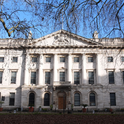Last week, Nicola Sturgeon reset the timetable for “IndyRef2,” with the potential date put back. Initially, the plan was for a vote in late 2018 or early 2019; now, the First Minister has said she will not introduce the legislation needed for a referendum until the autumn of next year.
It’s a deferral rather than an abandonment of a second independence ballot, done to try and steer a political path through diametrically opposite political pressures. On the one hand, the fact that pushing hard for another indyref has hurt the SNP as the result of the general election showed; and on the other the intense desire by many party members for a second independence referendum as soon as possible. The path she settled on has bought her some plaudits and time from the members, but the former problem will continue to hirple her.
Independence hasn’t gone away and yet a second referendum was never going to happen in the timescale first proposed anyway. Nor is it likely to occur within the delayed one either. It’s an abstract argument that arouses fervour amongst political activists but is becoming a turn-off for many voters.
The only potential trigger is a calamitous Brexit. Then all bets are off, both for Scotland in the union and for politics more generally in the UK. Whilst this remains a possibility it’s unlikely. Either a Brexit deal will be struck that’s acceptable or negotiations will still be ongoing; either of those outcomes would almost certainly necessitate a further delay in the referendum timetable.
There are three principal reasons why there won’t be an early referendum. Firstly, there’s no agreement from the UK Government. The last referendum was subject to approval and the Edinburgh Agreement was signed. Similar legislative consent would be required and an accord reached. Neither has been done nor is likely to be achieved. In the absence of some Catalonia type stand-off, an early second referendum isn’t getting beyond the statue books in Holyrood, if it even gets that far.
"Achieving another referendum isn’t everything; you have to win it"Secondly, as 8th June showed many people on both sides of the border are simply tired of elections and referenda. They want a break from politics for a while. The push for another independence vote certainly hurt the SNP: though it won the election in seats and votes it was at a high cost. 21 seats were lost including those of Westminster leader Angus Robertson and former First Minister Alex Salmond. It turned some against the SNP and was used by unionist opponents as a rod to beat them with. It probably also turned others off politics in general, as the SNP suffered more from past supporters not voting than switching to the Labour or Tory parties.
Thirdly, and perhaps most importantly there is no credible platform on which to win another referendum at the moment. The doubts that many had on currency and pensions have neither been answered nor assuaged. Indeed, new issues such as trading links with the UK and Britain’s relationship with the EU are now cast into uncertainty. Until there’s greater clarity on these, then many will feel unable to make a decision; or if they must will stay with the status quo and that means the union. Hence, a further referendum isn’t happening any time soon other than in the event of the social, economic and constitutional crisis that would follow a disastrous Brexit.
The first minister’s position hasn’t changed the reality of the situation. It has simply appeased, if not enthused, some hard-core supporters. However, it remains a potent weapon for opponents who like to talk of a “Neverendum.” It undoubtedly will continue to hurt the SNP; the question is to what extent. It certainly hasn’t shut down or even deferred the attacks, as the responses to her statement showed.
A referendum, despite the travails of Brexit, remains the correct way to address major constitutional issues and the right strategy for the SNP. However, more work needs to be done before another independence vote. The SNP need to build a bigger base for it through competent governance, and provide more details on what an independent Scotland would look like. There also needs to be clarity on the EU, Brexit and any relationship with the rest of the UK thereafter.
The aim of the SNP is and always will be independence for Scotland. But achieving another referendum isn’t everything; you have to win it. This deferral helps neither cause. Indeed, it contributes to the issue that’s costing the party. Now is not the time—and the delay doesn’t go far enough.
Now read why Nicola Sturgeon faces an uphill battle if she wants to revive Indyref2.













